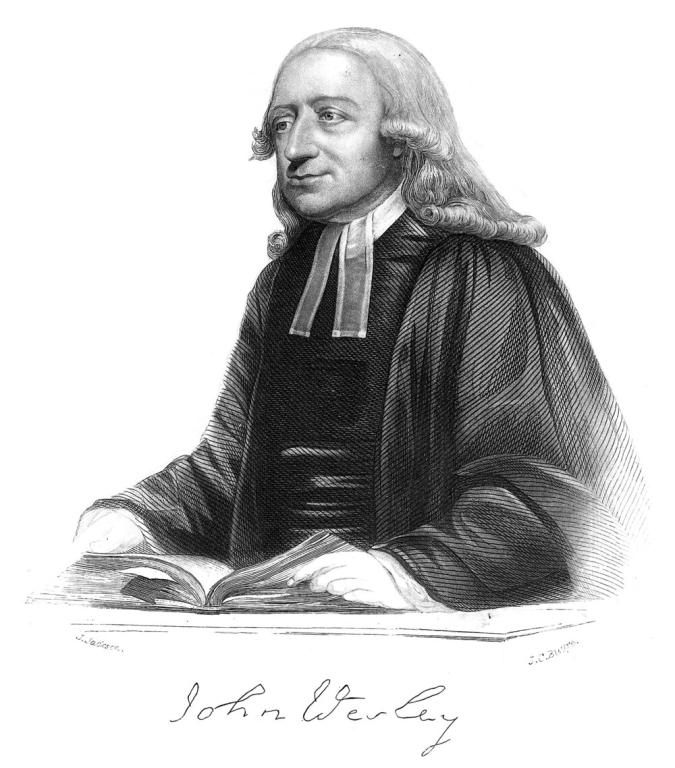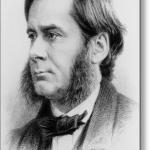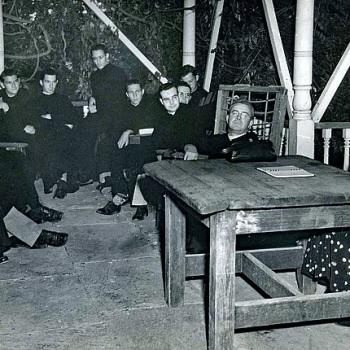
(from “Edwin Long’s Illustrated History of Hymns & Their Authors” 1875
John Wesley, the Anglican priest and founder of the Methodist movement, was born today, the 28th of June, in 1703.
His father Samuel was a priest, as well. He was also a poet, and probably unconnected to that fact, poorly managed the family’s finances, and was twice imprisoned for debt. John’s mother, Susanna, was the anchor of the family. Samuel and Susana had nineteen children together, nine of which lived to adulthood.
John attended Oxford, after which he was invited to teach. However he felt a call into ministry, and was ordered a deacon in 1725, and priested in 1728.
He was an amazing preacher. But also controversial. Eventually, Wesley’s spiritual journey led to the foundation of the Methodist movement.
Today, I find myself particularly thinking of the famous Manifesto he is often cited as writing. While he did not write it, it is considered an accurate summation of his principles.
The first iteration of the list was compiled by the scholar Gary Best for a Methodist chapel founded by Wesley, the New Room in Bristol, England. The original document was titled “John Wesley’s principles in the 18th century.” And followed with the question “a political manifesto for today?”
- Reduce the gap between rich and poor
- Seek to ensure full employment
- Introduce measures to help the poorest, including a living wage
- Offer the best possible education
- Empower individuals to feel they can make a difference
- Promote tolerance
- Promote equal treatment for women
- Create a society based on values and not on profits and consumerism
- End all forms of enslavement
- Avoiding engaging in wars
- Avoid narrow self-interest and promote a world view
- Care for the animals with whom we share our planet.
A rather impressive list. The New Room provides a series of talks where the sources are cited.
It certainly can be enriched. I think of his call to end slavery, given our times, should include a call to end the cascade of ugly consequences that can follow generations after the fact of slavery ends. And his call to improve the state of women can be expanded to a call for full and unambiguous rights. And with that to the rights of sexual minorities. I would also say that last principle addressing our relationship to the planet, can and needs to be more fully expanded.
But, all that totally acknowledged, oh my. What an interesting and compelling figure this man of the Eighteenth century was.
What a person, this John Wesley.
And. What a call. Perhaps even a manifesto for this moment?
I feel it a call to my heart.
Maybe yours, as well?
And at no extra charge, a little gift from John’s brother Charles…













